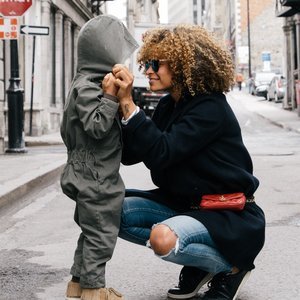How to help little kids handle their big feelings
Children’s emotions can be wild and unpredictable, and it can be challenging to know how to manage them. The best thing you can do to support your child is to remain calm and not get angry when their emotions are running wild. This technique is called parent-child coregulation, and it involves parents “sharing their calm” with their child. By being empathetic and understanding, rather than reactive, you can help your child regulate their emotions.
Here are a few ways you can help your child handle their big feelings.
Validate their emotions
Don't dismiss their feelings as silly or childish. Something that may not seem like a big deal to you may be a big deal to them, and it’s important that they feel validated and heard.
Identify what triggered their emotion
Encourage them to tell you what they're feeling and why. Let them know it's okay if they don't know exactly how they feel, and that it's okay if they're not sure how to describe it. Then, ask them questions like "What makes you feel this way?" or "Who is involved in making you feel this way?" or "What happened that made me sad/mad/worried?”
Help them recognize their emotions
Let them know that they are not alone and tell them about a time that you felt a similar way and how you felt. Help them understand what they’re feeling and put a name to it.
Teach them coping skills
Rather than dismissing their feelings and shutting them down, recognize that this could be a powerful learning opportunity for them to know how to work through these emotions in a healthy way.
Read books on emotional regulation
Here’s a blog post we did that has some great suggestions for books on emotions and mental health to help teach your kiddos about their big feelings.
Provide an emotional outlet
Be a safe space for them to open up about their emotions without feeling ashamed. The more emotions are bottled in, the more likely they are going to explode eventually. Let them know that it’s okay to cry, it’s okay to have these feelings, and that they will pass. Give them your time and attention, free of distractions, and help them feel supported.
Discuss the difference between feelings and behavior
In that safe space, it’s also important to explain that feeling a certain strong emotion is different than acting on it and that there are healthy ways to express those emotions in a way that isn’t destructive.
Instill a growth mindset
Celebrate their wins – no matter how big or small – and give them positive affirmation throughout the process of learning how to regulate their emotions. Focus on the positives and remind them how strong they are and that they are not alone.

